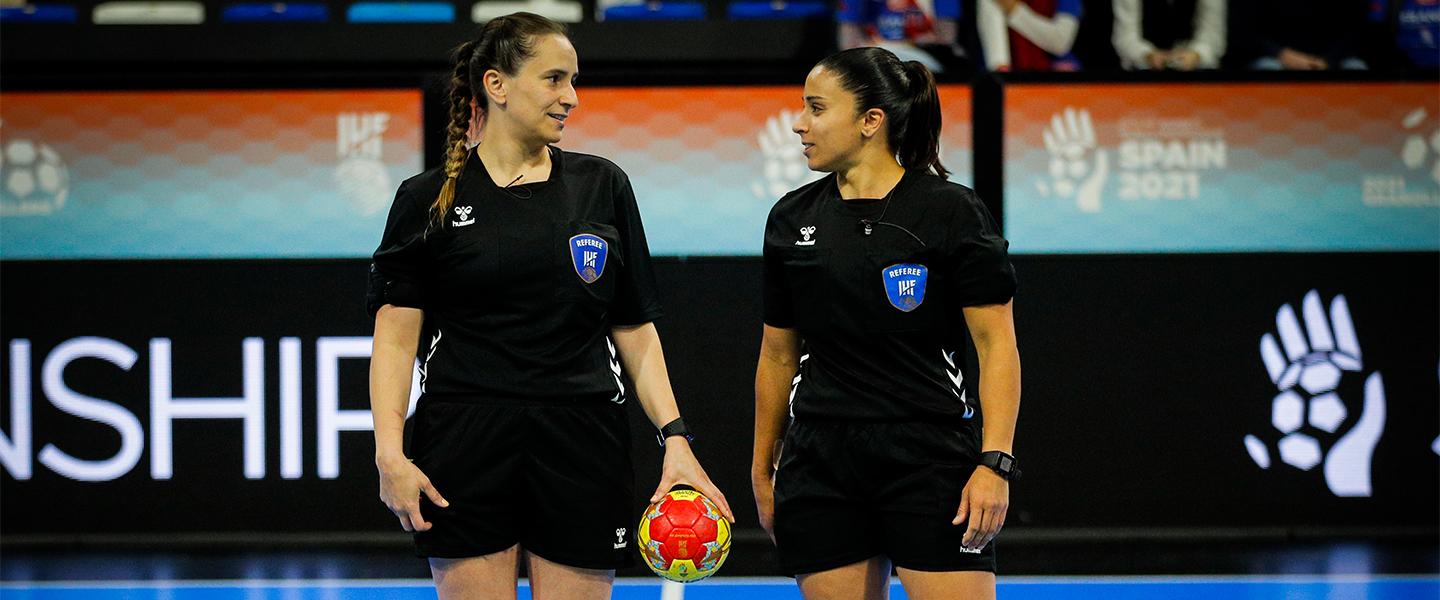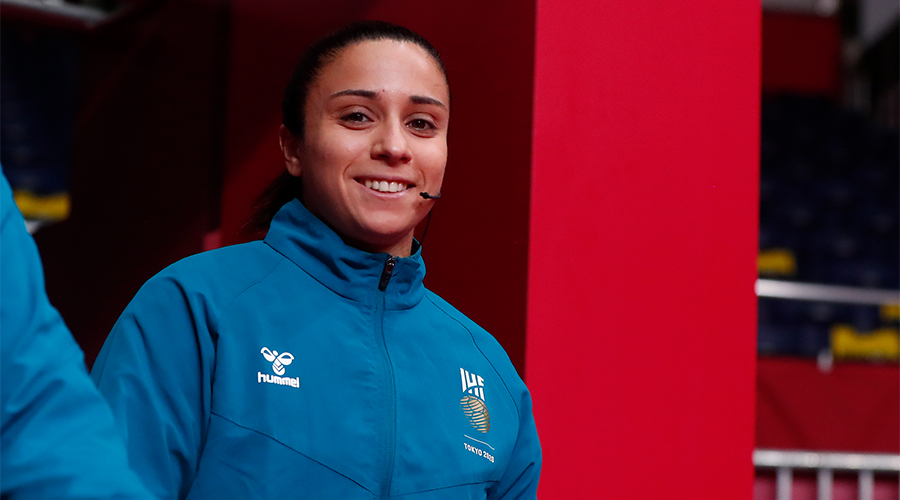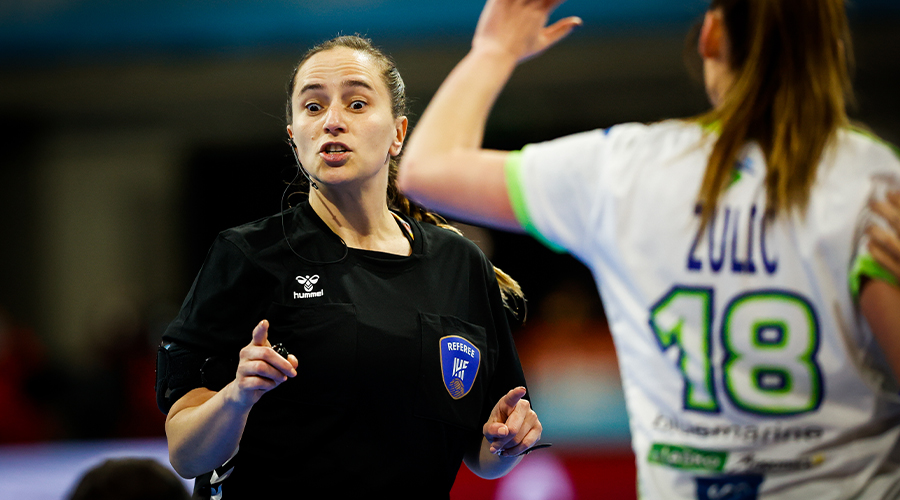A day through the lens of a referee
14 Jul. 2022

Referees are integral to the game of handball, as every action in the game needs to be judged impartially. But how do referees approach a tournament? What makes them tick? How does a day in their lives look?
As part of our International Handball Week celebrations, we take readers behind the scenes with one of the referee pairs in handball, Argentina’s Mariana García and María Inés Paolantoni, who have written history in the past few years.
They were the first couple from South America to take part in the Olympic Games, at Tokyo 2020, while also being selected to referee the final of the 2022 IHF Women’s Junior (U20) World Championship this July.
ihf.info talked to both Mariana and María Inés and decided to present their answers as a couple rather than individuals – the way they also feature on the court.
MORNING
First of all, the schedule always depends on the load of games that we have. That changes everything, because every referee wants to be fit and sharp. But we usually have breakfast together with all the referees at the tournament in the morning, it really helps because we are in this together.
After this, we train for a few minutes, but the type of training changes, according to what our FitGood experts prepare for us. In general, during the IHF World Championship tournaments, there are technical meetings every day, if the schedule allows it. This is the time, where we work on the technical concepts of refereeing, according to the matches from the previous day.
We also have meetings with the IHF coaches [analysts and members of the IHF Commission for Coaching and Methods], where they give us a tactical and technical analysis of the teams that reach the final stages in order to anticipate situations that may happen in the game.
The truth is that although we watch the games of the teams that we will have to referee that day, a coach’s point of view is always enriching and allows us to arrive better prepared for the game. After that, before lunch, if one of us has a muscle strain or is in any discomfort, we have a session with María Müller, the kinesiologist from FitGood.

AFTERNOON
Lunch is always important, because a good meal will always improve the mood and the way you approach a match. After that, if we did not see the teams we are going to judge that day, we try to have a look to see what patterns we can find to better prepare for the match.
Depending on the time of the game we go to bed to rest and, after waking up, we bathe, dress, comb our hair and pack our bags. Roughly 90 minutes before the start of the game, we are in the arena, find our locker room, leave our things there and wait for the teams to arrive to have the coin toss, to see who the first possession goes to and which part of the court the other team chooses.
Once the coin toss is done, we go to the locker room to start getting dressed while listening to music, it's always the same songs, the rhythm helps us start getting into the mood of the match. In the locker room we do the mobility and stretching exercises prior to the actual warm-up.
About 35 or 40 minutes before the start of the game, we go out on the field to carry out the warm-up, which includes the normal routine for a referee, preparing our bodies and minds for the game.
During the game, we talk about the game situations that are happening. We trust each other a lot, hearing each other in the headsets is a huge help, because although the our tasks are already set in stone, sometimes due to a wrong position or proximity, our partner can help us. Teamwork is essential and trust in our colleague is essential to do a good job.
At half-time, we usually make a brief review of the strong points that we must maintain in the second half, the possible places of conflict and analysis of the mistakes so that we do not make them again in the second half. Thus, we give ourselves the space to make the adjustments that may be necessary.
If there are no games on a given day, it is also important to try and disconnect a little from the tournament, because having a clear mind is crucial. Whether it is a walk through the city, drinking a coffee or going to a shopping centre – everything can help.
EVENING
After the match, we try to decompress for a few hours and try to see what we could have done better or differently, also to evaluate if our strategy to referee was the correct one.
We try to go to sleep together at the same time, despite having different rhythms. While one usually gets up a bit earlier, it is harder for the other to go to sleep so that we wake up at different times.
The next day, we meet with the delegate of the match, to see what went good and if something was bad. It is a very important moment for us because it allows us to know the vision of someone neutral, external, with more experience than us, about our work, which gives us the possibility of improving in the next matches.


